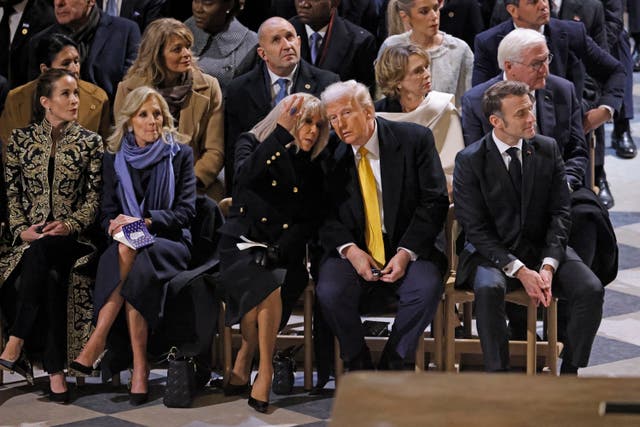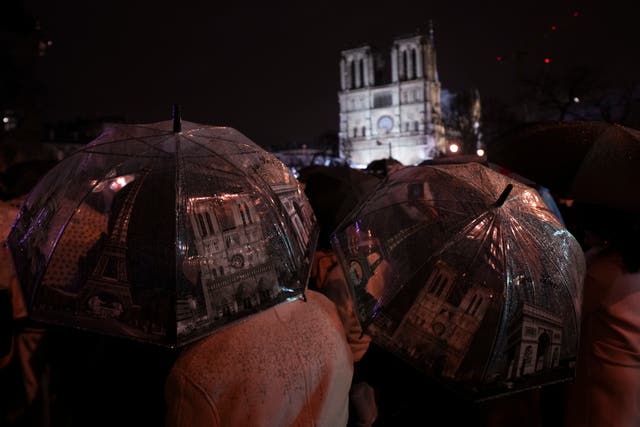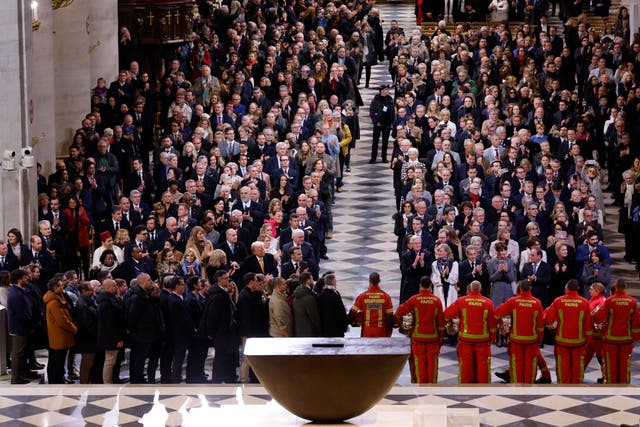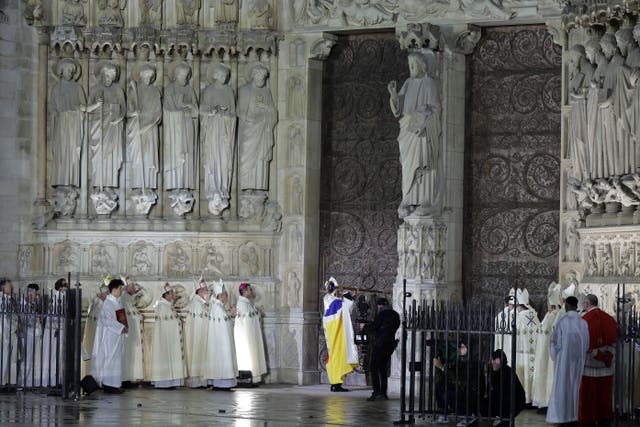Howling winds could not stop Notre Dame Cathedral’s heart from beating again.
With three resounding knocks on its doors by Paris Archbishop Laurent Ulrich, wielding a specially designed crosier carved from fire-scorched beams, the monument roared back to life on Saturday evening.
For the first time since a devastating blaze nearly destroyed it in 2019, the towering Gothic masterpiece reopened for worship, its rebirth marked by song, prayer, and awe beneath its soaring arches.
Yet the occasion lost none of its splendour. Inside the luminous nave, choirs sang psalms, and the cathedral’s mighty organ, silent for nearly five years, thundered to life in a triumphant interplay of melodies.
In his speech, Mr Macron expressed “gratitude” to those who saved, helped and rebuilt the cathedral.

“Tonight, the bells of Notre Dame are ringing again. And in a moment, the organ will awaken,” sending the “music of hope” to Parisians, France and the world.
He praised the bravery of fire fighters and recalled how, at 10.47pm on the night of April 15 2019, the first message came through saying that the inferno was being beaten.

Mr Macron delivered the entire speech in French despite the multinational mix of VIP guests. At the end, Mr Trump and Mr Macron shook hands.
The restoration, a spectacular achievement in just five years for a structure that took nearly two centuries to build, is seen as a moment of triumph for French President Emmanuel Macron, who championed the ambitious timeline – and a welcome respite from his domestic political woes.

Observers see the event as Mr Macron’s, and his intention to pivot it into a fully fledged, diplomatic gathering, while highlighting France’s ability to unite on the global stage despite internal political crises.
Inside, 42,000 square meters of stonework – an area equal to six football pitches – were meticulously cleaned, revealing luminous limestone and intricate carvings.
Overhead, 2,000 oak beams, nicknamed “the forest”, were used to rebuild the spire and roof, restoring the cathedral’s iconic silhouette.
The thunderous great organ, with 7,952 pipes ranging from pen-sized to torso-wide, resounded for the first time since the fire.

Guests gradually filing into the cathedral for the evening reopening ceremonies were awestruck by the renovated interiors, many whipping out mobile phones to capture the moment.
Guests entered through Notre Dame’s iconic western facade, whose arched portals adorned with biblical carvings were once a visual guide for medieval believers.
Inside, the hum of hundreds of guests awaiting the service filled the cathedral with human sounds once more – a stark contrast to the construction din that echoed there for years.
The celebration is expected to give a much-needed boost to embattled Mr Macron, whose prime minister was ousted this week, plunging the nation’s politics into more turmoil.

Security will be high through the weekend, echoing measures taken during the Paris Olympics earlier this year.
The Ile de la Cite – the small island in the River Seine that is home to Notre Dame and the historic heart of Paris – is closed to tourists and non-residents.
Public viewing areas along the Seine’s southern bank will accommodate 40,000 spectators, who can follow the celebrations on large screens.
For many, Notre Dame’s rebirth is not just a French achievement but a global one – after the reopening, the cathedral is set to welcome 15 million visitors annually, up from 12 million before the fire.






